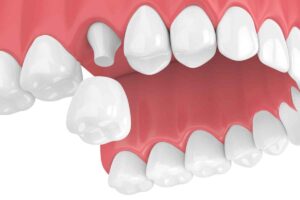
Tooth sensitivity is a very common problem that can give rise to pain at the time of eating or drinking very hot, cold, sweet, or sour foods. It could be due to worn enamel, cavities, exposed roots of the teeth, or even after dental procedures. If you are experiencing sensitive teeth, you might ask yourself if getting dental crowns in Toronto will help alleviate your pain. Let’s explore how crowns work and how they can improve tooth sensitivity.
What Causes Tooth Sensitivity?
To grasp how crowns can help, let’s first explore the causes of this unwanted sensitivity. Tooth hypersensitivity is often due to:
- Worn enamel – Enamel is the protective layer of your teeth. It can gradually wear away due to aggressive brushing, acidic foods, or grinding.
- Tooth decay-the cavities left behind expose the dentin of the tooth layer, making a person sensitive.
- Gum recession– Whenever the gums move back, there is a movement of exposing some parts of the roots to some sensitivity.
- Cracked or chipped teeth– The structure of the tooth is damaged, thereby exposing the nerves and causing pain and discomfort.
- Dental treatments – Some people develop temporary sensitivity after some dental procedures like whitening, deep cleaning, or filling.
How Do Dental Crowns Help with Sensitivity?
A dental crown is a cap shaped like a tooth that is used to cover a damaged or weakened tooth. Its functions are restoration of function, improvement in appearance, and protection of the tooth from any further damage. Here’s how dental crowns can help with tooth sensitivity:
1. Sealing Exposed Dentin and Nerves
When the enamel is worn out or the tooth is cracked, the inner layers of the tooth are exposed. A dental crown covers the sensitive areas that cannot be irritated by hot, cold, or acidic foods.
2. Stabilizing Weak or Damaged Teeth
If your tooth is cracked, chipped, or decayed, it will become sensitive due to the exposure of inner tissues. A crown reinforces the tooth’s structure, which reduces the possibility of further damage and sensitivity.
3. Protecting After a Root Canal
A root canal procedure removes the infected or damaged pulp from a tooth, leaving it weak. A crown will typically be placed over the treated tooth to protect it and prevent sensitivity.
4. Preventing Further Wear and Tear
A crown is helpful for people who grind their teeth (bruxism) or have enamel erosion because it prevents further damage and reduces sensitivity.
When Should You Consider Getting a Dental Crown?
Though a dental crown may be a very good solution to sensitivity, crowns are not always required for every case. You may need a crown in the following scenarios:
- You have a cracked or broken tooth, which is creating sensitivity.
- You have a significantly worn-out tooth due to grinding or acid erosion.
- You’ve had a root canal treatment done.
- You have a large cavity that cannot be filled with just a simple filling.
- You suffer from persistent sensitivity even after the use of desensitizing toothpaste and fluoride treatments.
Other Ways to Manage Tooth Sensitivity
While crowns are effective, some additional ways to manage sensitivity include:
- Using a soft-bristled toothbrush and gentle brushing technique.
- Avoiding acidic foods and beverages that can wear down enamel.
- Using desensitizing toothpaste recommended by your dentist.
- Applying fluoride treatments to strengthen enamel.
- Wearing a mouthguard if you grind your teeth at night.
Visit Bloor Lansdowne Dental Centre Today!
If you are experiencing sensitivity in your teeth and need a permanent solution, dental crowns may be just what you need. They are strong barriers that protect your teeth from further damage and discomfort. If you want dental crowns in Toronto, then visit Bloor Lansdowne Dental Centre.
Our experienced dentist in Toronto can assess your condition and recommend the best treatment to restore your oral health and comfort. Book an appointment today to take the first step toward a pain-free smile!